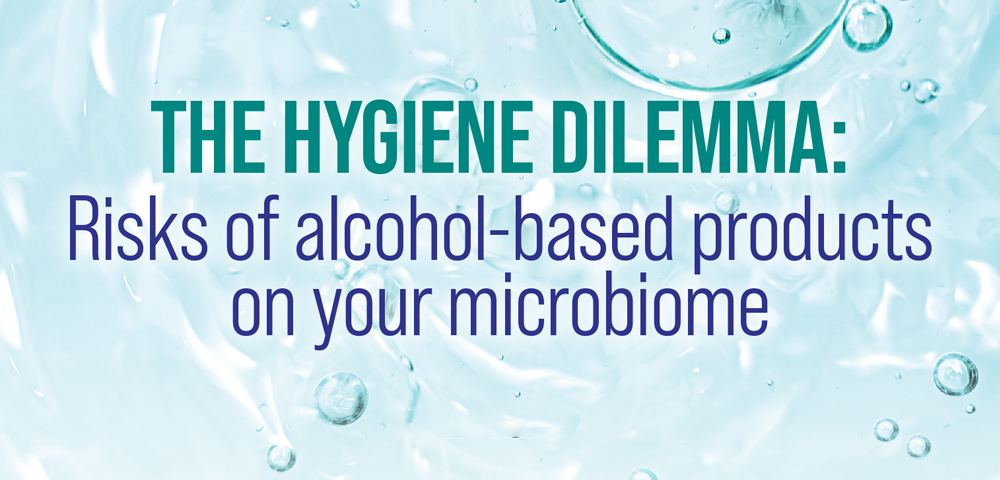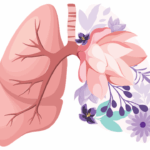
While alcohol-based products effectively kill germs quickly, frequent use can disrupt your skin and oral microbiomes.
Millions of people use alcohol-based hand sanitizer or mouthwash daily to protect their skin or keep their mouths minty fresh, but many aren’t aware that these products could be doing more harm than good. While alcohol (e.g., ethanol) is a powerful ingredient in personal care products – killing germs, preserving freshness, dissolving active ingredients, and helping them penetrate deeper into the skin – there’s a downside to its frequent (over)use. Just like your gut, your skin is home to trillions of microbes – bacteria, viruses, and fungi – that support your immune system. Overusing alcohol can disrupt this delicate community, harming beneficial bacteria, drying out your skin(or mouth), and stripping away natural oils, making it more vulnerable to infections, allergies, and potentially other health issues. Studies show that disrupting the microbiome doesn’t just affect your skin – it can contribute to chronic health issues like asthma, arthritis, allergies, and even inflammatory bowel disease. Some experts suggest that overusing alcohol-based and harsh chemical-containing personal care products may worsen these rising health problems.
Alcohol-based hand sanitizers
During the COVID-19 pandemic, alcohol-based hand sanitizers became a go-to tool for killing germs like SARS-CoV-2. While crucial in hospital settings, frequent personal use can harm your skin’s natural defenses and may lead to other health problems.
• Alcohol raises the skin’s natural pH, disrupting the acid mantle (typically below 5), thus weakening its ability to fend off harmful intruders and support beneficial bacteria.
• Alcohol acts as a “penetration enhancer” by breaking down proteins in the skin’s outer layer (stratum corneum), stripping natural oils, and disrupting the microbiome. This can cause dryness, irritation, and conditions like contact dermatitis or eczema – weakening the skin barrier and allowing allergens or harmful/toxic substances to enter.
Alcohol-based mouthwashes
New research cautions against using alcohol-based mouthwashes regularly – a habit millions of people worldwide follow.
• Just like alcohol consumption, alcohol-based mouthwashes disrupt the oral microbiome, reducing beneficial bacteria like Lactobacillales and Actinobacteria, while promoting harmful strains like Neisseria, which can produce carcinogenic acetaldehyde. This imbalance can impact cardiovascular health by decreasing nitrate-reducing bacteria (like Actinobacteria) that help regulate blood pressure.
• Mouthwashes containing 20% or more ethanol can damage oral cells and, over time, may raise the risk of oral cancer.
While alcohol-based products effectively kill germs quickly, frequent use can disrupt your skin and oral microbiomes. Choose alcohol-free, gentler alternatives and reserve alcohol-based solutions for when they are truly necessary.











